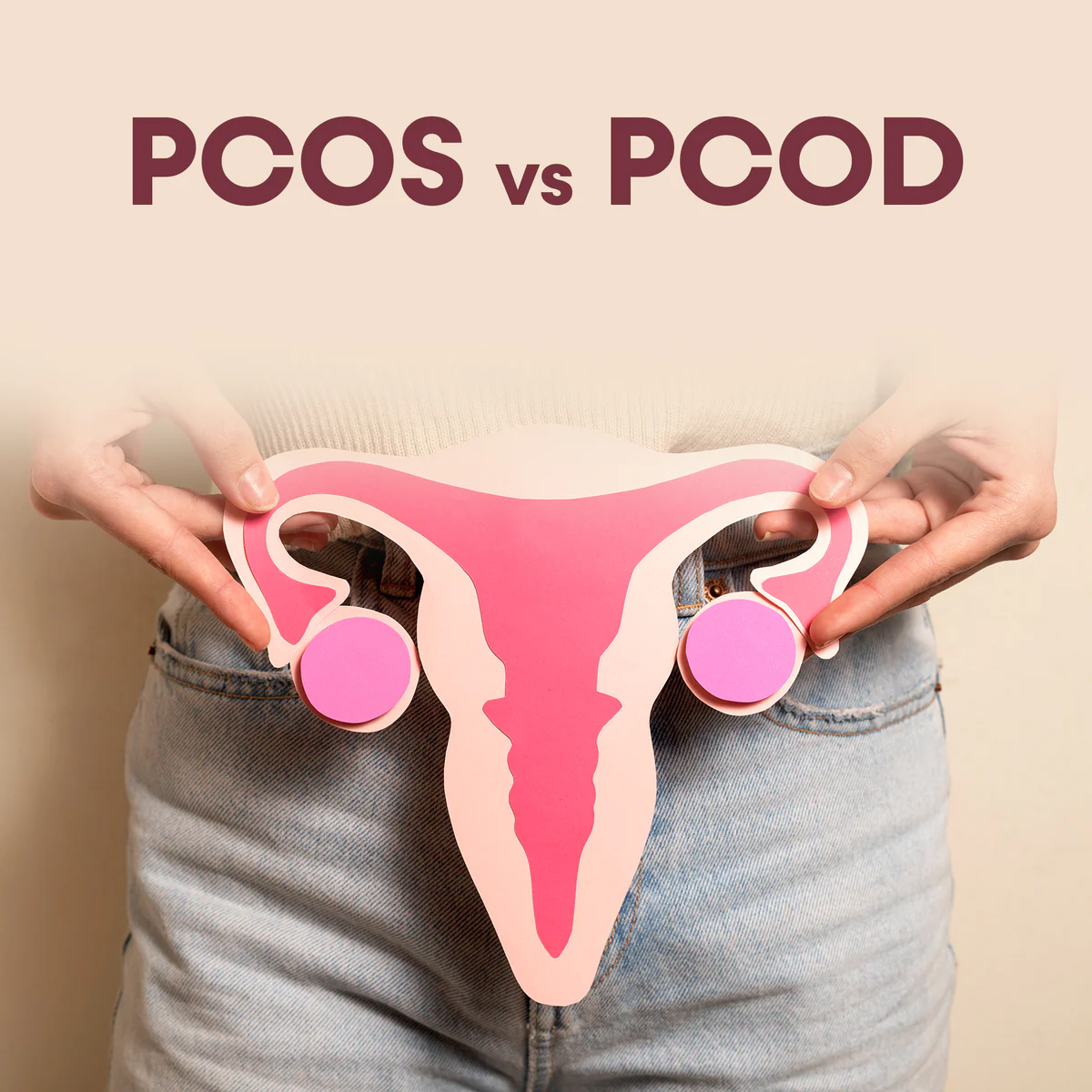
PCOS vs. PCOD

Differences, Symptoms, and Best Diet Tips
Polycystic Ovary Syndrome (PCOS) and Polycystic Ovarian Disease (PCOD) are common hormonal disorders affecting women. Both conditions lead to irregular periods, weight gain, and infertility, but they have key differences. Understanding PCOS vs. PCOD helps in better management and treatment.
What is PCOS?
PCOS is a hormonal disorder where the ovaries produce excess androgens (male hormones), leading to:
✅ Irregular menstrual cycles
✅ Multiple ovarian cysts (fluid-filled sacs)
✅ Excess facial and body hair (hirsutism)
✅ Weight gain, especially around the abdomen
✅ Acne and oily skin
✅ Thinning hair or hair loss (male-pattern baldness)
✅ Infertility or difficulty conceiving
Causes of PCOS
The exact cause of PCOS isn’t clear, but it is often linked to:
✔️ Insulin resistance – The body struggles to use insulin properly, leading to higher androgen levels.
✔️ Genetics – PCOS often runs in families.
✔️ Obesity – Excess weight can worsen PCOS symptoms.
What is PCOD?
PCOD occurs when the ovaries release immature or partially mature eggs, which turn into cysts. This can lead to hormonal imbalances and enlarged ovaries.
PCOD Symptoms
🚩 Irregular periods
🚩 Weight gain, especially in the belly
🚩 Hair loss or thinning hair
🚩 Infertility in severe cases
🚩 Oily skin and acne
Unlike PCOS, PCOD symptoms can often be managed with lifestyle changes and doesn’t always require medical treatment.
PCOS vs. PCOD: Key Differences
| Feature | PCOS | PCOD |
|---|---|---|
| Cause | Hormonal imbalance, excess androgens | Immature egg release, ovarian cysts |
| Severity | More severe, can affect metabolism | Milder, mostly affects reproductive health |
| Fertility Impact | Higher risk of infertility | Pregnancy possible with minor medical help |
| Health Risks | Increased risk of diabetes, heart disease, and endometrial cancer | Fewer long-term health risks |
| Treatment | Requires medical treatment + lifestyle changes | Can be managed with diet & exercise |
Best Diet for PCOS and PCOD
A healthy diet plays a key role in managing PCOS and PCOD symptoms. Here’s what to eat and avoid:
Foods to Include:
🥦 Leafy greens & vegetables – Spinach, broccoli, cauliflower
🍎 Fruits – Berries, apples, pears (low glycemic index)
🍚 Whole grains – Brown rice, quinoa, oats
🐟 Lean proteins – Chicken, turkey, fish
🥑 Healthy fats – Avocados, nuts, seeds
🌿 Herbs & spices – Turmeric, cinnamon, ginger
Foods to Avoid:
🚫 Refined carbs – White bread, pastries
🚫 Sugary drinks & sweets – Soda, candies
🚫 Processed foods – Fast food, packaged snacks
🚫 Excess caffeine & alcohol
Lifestyle Tips for PCOS & PCOD Management
🏃♀️ Regular exercise – 30 minutes of walking, jogging, or yoga can improve insulin sensitivity.
🥗 Healthy eating habits – Balanced meals with high fiber, protein, and healthy fats help regulate hormones.
😴 Quality sleep – Aim for 7-9 hours of sleep per night for better hormone balance.
🧘♀️ Stress management – Practice yoga, meditation, or deep breathing to lower stress levels.
Best Yoga Poses for PCOS & PCOD
🧎♀️ Reclining Bound Angle Pose (Supta Baddha Konasana) – Improves blood circulation to the ovaries.
🌀 Bharadvaja’s Twist – Helps in digestion and detoxification.
🐍 Cobra Pose (Bhujangasana) – Regulates menstrual cycles.
🌉 Bridge Pose (Setu Bandhasana) – Stimulates reproductive organs.
Why Choose NutriPrior?
Both PCOS and PCOD can be managed effectively with a healthy lifestyle, proper diet, and regular exercise. If you experience irregular periods, weight gain, or excess hair growth, consult a nutritionist or healthcare provider for a personalized treatment plan.
👉 Looking for a PCOS-friendly diet plan? Book a consultation with NutriPrior today!
